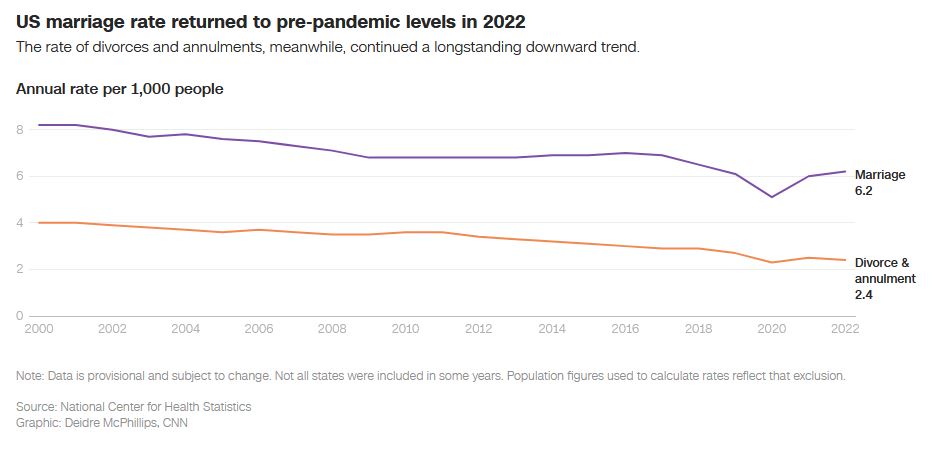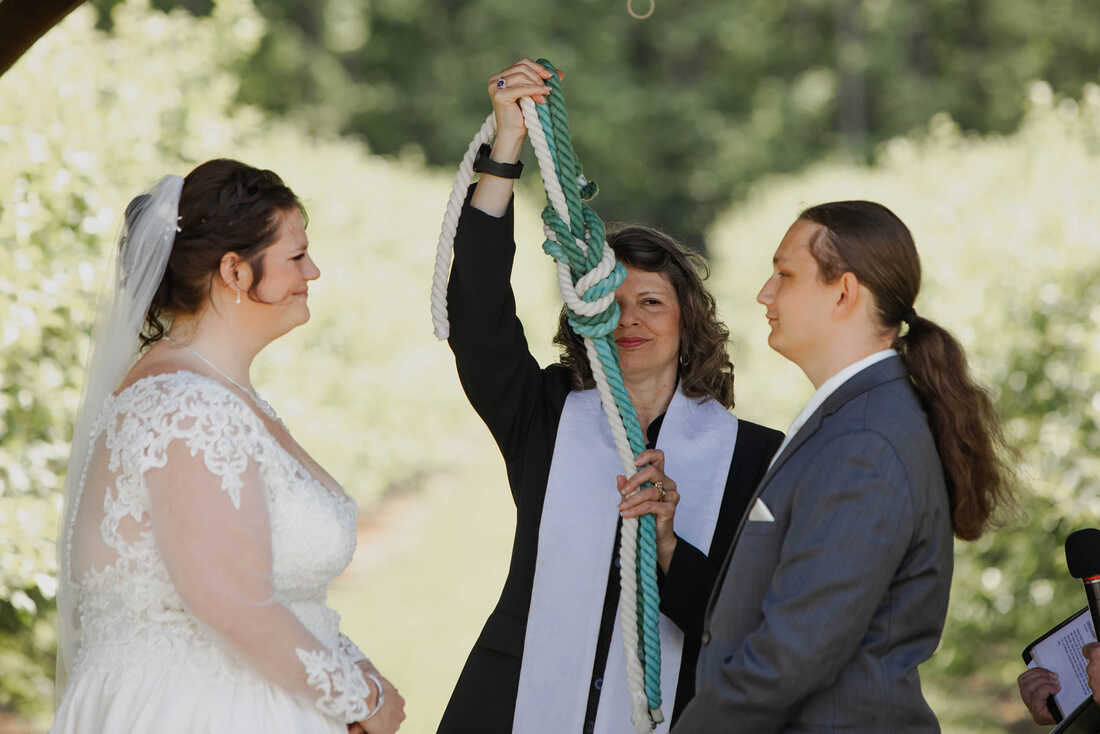|
A recently published study is showing that marriage rates continue to climb after Covid, while divorce and annulment rates are dropping. This is great news and a positive to come out of a difficult time for many. Why is that?
Many couples moved in together and were locked down during Covid. As a result of living/working together, many couples had to face typical issues not usually addressed until much later in their relationship such as finances, compromising and autonomy. Those facts in addition to couples choosing partners who they share more companionship with than necessarily are just romantic partners, leads to the new statistics. This intentionality of designing a marriage that will foster a healthy, happy relationship that allows for individual happiness as well as happiness as a couple has been the foundation for premarital education classes long before Covid. Having a third party guide couples along the discussions; couples talking about things they might not have considered on their own; learning how to prevent conflict, move through it quickly and how to come out stronger on the other side of conflict; identifying their communication styles; navigating extended family relationships; and more can make the difference between a couple not being prepared for the ebbs and flows of marriage, and keeping their relationship healthy when things get tough. There are a variety of programs offered that are focused in different ways. Religious organizations usually offer a program focused on the teachings of their faith. Professional therapists offer programs focused on resolving childhood issues that can cause problems in a relationship down the line. The program I offer is focused on helping couples gain skills needed, based on scientific research and real world best practices. If you're considering getting married or just did so, consider enrolling in a premarital education program. It's not that important to complete it before your wedding day. It's more important that you complete it before you need the skills. When planning your ceremony, one of the ways you can personalize it and help your guests know a bit more about who the two of you are as a couple is through your unity ceremony.
A unity ceremony is a visual way to demonstrate the joining together of two individuals with God as One (if a religious union) or two lives together (if more civil/non-religious). Typically folks are familiar with the lighting of a center Unity candle or the pouring of colored sand into a central container. These are great options for an indoor ceremony, but may not work if you're outdoors where the wind can blow out candles or scatter sand. So what are other options? For those seeking something more spiritual, there are unity hearts, unity crosses, or a wine ceremony. For those seeking something that perhaps helps them speak to their roots, a unity ceremony with an Irish crios, a handfasting, a lasso or blanket ceremony, or jumping a broom may be perfect. And for others, having something that's not tied to religion but may be fun could be a tree planting, knot tying, unity box or unity locks. If you have a skilled officiant, they can get to know you, and create a unity ceremony that's unique and meaningful for the two of you that may be very different from anything your friends may have. I've created unity ceremonies for couples that love to camp, ski, run, drive a semi truck, play cribbage and so many more. So as you begin to plan your wedding, think about the things that you and your sweetheart have in common. What do you like to do for fun? What speaks to who the two of you are as a couple? That will be the place to start. Then reach out and ask me how I'd tie that in for you on your special day. |
AuthorRev. Ronnie was ordained in 2010 as an interfaith minister through The New Seminary, located in New York City. She is available to perform ceremonies throughout the United States, aboard ship or in other countries. Archives
June 2024
Categories |


 RSS Feed
RSS Feed